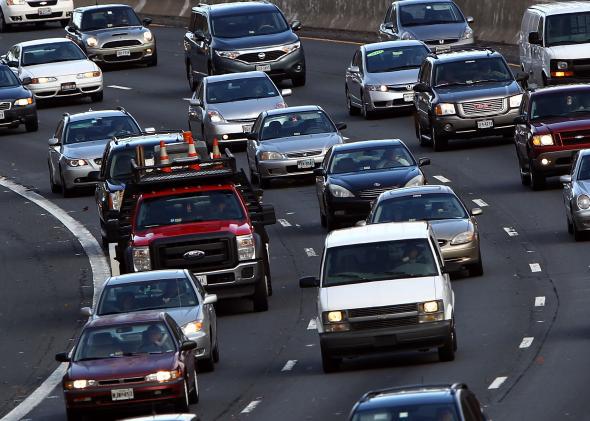Maybe you’ve been wearing a FitBit for a while, or you were the first person in your neighborhood to install a Nest smart thermostat. But for the most part, the quantified-self and smart home movements are still in their early stages. For insurance companies, though, there’s big incentive to move things along.
Health, home, and car insurance companies are all beginning to offer programs that give lower premiums to customers who share their own data. If health tracking, home monitoring, or GPS driving analysis shows that someone is a relatively low risk, they can pay less to be insured. But if the data show negative trends, insurance companies can jack up costs.
Health trackers can send data to employers and/or directly to insurance companies so employees can show that they are staying healthy or getting healthier, and potentially get lower insurance bills. It’s mutually beneficial in the sense that customers are paying less and insurance companies are reducing their risk of having to pay out during a big medical emergency like a heart attack or stroke.
A recent Daily Herald piece gives the example of a male 260-pound BP employee who used a FitBit to log more than a million steps over several months, during which he lost 70 pounds. The result was an annual insurance bill that was $1,200 cheaper for him. And with quantified-self sensors improving and expanding their features all the time, this scenario may become the norm. You can even see how the new Apple Watch would fit in, since it allows people to share information about their heart beats in addition to collecting typical fitness data.
Car insurance companies can use GPS tracking data from vehicle sensors or smartphones—which are ubiquitous and don’t require installation—so they can determine who is a safe driver and who isn’t. Safe driver discounts from companies like State Farm and Progressive already offer better rates if customers don’t make a claim for a certain number of months or years, but tracking can potentially allow discounts to be deeper, and can help insurance companies pick out who is actually driving dangerously, even if it hasn’t resulted in an accident yet.
One roadside assistance company, Agero, says it works with seven of the 10 top insurance companies nationwide. Its senior vice president of strategy, Jeff Blecher, told ComputerWorld last week, “The raw data comes to one of our data centers where we do the processing. We then have direct connections into insurance companies. They see the processed data and can make the evaluation on risky behavior to calculate risk premiums.”
And the case of homeowner’s and renter’s insurance is one of the most clear illustrations of how personal data could fundamentally change insurance. If companies have the ability to monitor environmental conditions like temperature and moisture level, they can tell a lot about how a house is being maintained. And especially for higher-risk scenarios like beach-front houses, second homes, or vacant properties, this data could help insurers offer premiums that are calculated with more accuracy.
In all of these scenarios, though, the possibility of cheaper premiums can be a distraction from potential downsides and serious privacy concerns. For example, someone who is committed to losing weight may be unfairly penalized if they struggle to achieve significant results in spite of genuine effort, or a car insurance company could misinterpret unusual driving activity it sees because it doesn’t know the context of the other cars on the road.
The New York Times reported in August that in the case of car insurance, people currently aren’t being penalized for being bad drivers, because companies are mainly just trying to entice customers to opt in to data collection. But eventually if everyone is getting discounts, rates may go up. On the flip side, some argue that all of this data collection will undermine the insurance industry’s ability to charge arbitrary amounts for premiums. Alex Hawkinson, who cofounded the smart home company SmartThings, told Forbes last month that, “I don’t know if the insurance industry will change their model fast enough. Smart homes absolutely eviscerate the current system. Insurance is a tax on society. It should be less.”
The biggest concern is that mainlining tracking data to an employer or insurance company can unintentionally provide those groups with deep personal information that they shouldn’t have about your activities, interests, and general whereabouts. It may just seem like fitness data, but it’s an unprecedented window into your life for people who aren’t necessarily working in your interest.
It may all seem far away now, but there’s big money in personal data and insurance so this isn’t going away. Time to start thinking about what you’d be willing to share, and what you would want to keep private.
